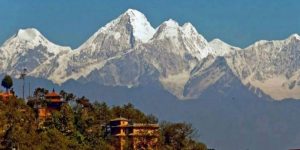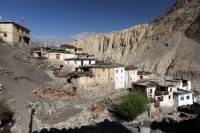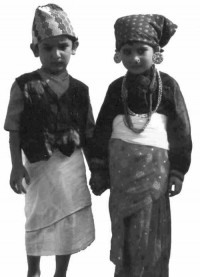Swaastitwako Khoj, the Search of Self-identity
A compilation of thirty eight narratives by women writers, Swaastitwako Khoj is a book edited by Archana Thapa that comes as a serious move towards establishing women’s self-identity on their own accord. The personal narrative stories in the book are highly influenced by the writers’ own experiences which also make the stories vary from one another although the major theme is the same, that is, a quest for their identity.
Some of the stories in the book depict the issue of a family’s happiness at birth of a baby boy and their grievance on a baby girl’s birth, a single woman’s struggle of making a career for herself in Kathmandu, a woman dominating and suppressing another woman, husband’s dominance and suppression upon their wives, mother’s hidden and suppressed dreams, daughter’s present full of infinite choices, state of finding identity between husbands’ environment and parties, stories of abduction, stories of economic and social struggle for freedom, genuine personal accounts during the menstrual cycle, mother-daughter stories of generation gap, daughter-in-law’s stories, stories of change in time and equality and many other personal narratives related to women.
Each narrative is unique in itself and although different, they are related to one another, one way or the other. Although the book is seen in the lights of feminism and is often considered as a feminist novel, it does not give priority to the issues of feminism or make a move against patriarchy, rather, it encourages women to seek their own identity and develop a sense of sisterhood. The book starts with a poem by Usha Sherchan titled Kathaputali Ma (Puppet Me) which depicts how the women had been treated for centuries, like a showpiece and toy that are controlled and used by males and the difficulty they (women) face in breaking the chains. The end of the book is also marked with another poem by Sulochana Manandhar which compares and contrasts the lives of women who cook and those who burn firewood and find their identity in them.
The thirty six narratives between these two poems are in subjective form making it a good medium of self expression. Sharada Sharma, Uma Subedi, Nisha K.C., Archana Thapa, Alka Aatriya Chudal and others have demonstrated the writing strength of Nepali female writers through their narratives in the book Swaastitwako Khoj which literally translates to ‘The Search of Self-identity’.







